
Mahale Mountains National Park: A Pristine Wilderness in Tanzania
Nestled along the shores of Lake Tanganyika, Mahale Mountains National Park is a gem of natural beauty and wildlife in Tanzania. This remote park is famous for its dense forest, towering mountains, and crystal-clear waters. It offers a unique experience for those looking to connect with nature in its most unspoiled form. One of the park's main attractions is its population of wild chimpanzees. Visitors can trek through the forest to observe these fascinating primates in their natural habitat, an experience that is both humbling and exhilarating. The park is also home to other wildlife such as leopards, lions, and various bird species, making it a paradise for wildlife enthusiasts. Apart from wildlife, the park's landscape is breathtaking. The Mahale Mountains rise dramatically from the lakeshore, providing a stunning backdrop for the park's diverse ecosystems. The clear waters of Lake Tanganyika are perfect for swimming, snorkeling, and fishing, offering a refreshing contrast to the dense jungle. Accessing Mahale Mountains National Park is an adventure in itself. The park is only reachable by boat or light aircraft, which adds to its allure as a secluded destination. For those willing to make the journey, Mahale promises an unforgettable experience of wilderness and wonder.
Local tips in Mahale Mountains National Park
- Best time to visit is during the dry season from June to October for easier trekking and better wildlife spotting.
- Pack light but include essentials like insect repellent, sunscreen, and sturdy walking shoes.
- Book your accommodations and permits well in advance due to the park's limited access and high demand.
- Consider hiring a local guide for the best chance to see chimpanzees and learn about the park's ecology.
- Bring cash for local transactions as there are no ATMs or card payment facilities in the park.
Mahale Mountains National Park: A Pristine Wilderness in Tanzania
Nestled along the shores of Lake Tanganyika, Mahale Mountains National Park is a gem of natural beauty and wildlife in Tanzania. This remote park is famous for its dense forest, towering mountains, and crystal-clear waters. It offers a unique experience for those looking to connect with nature in its most unspoiled form. One of the park's main attractions is its population of wild chimpanzees. Visitors can trek through the forest to observe these fascinating primates in their natural habitat, an experience that is both humbling and exhilarating. The park is also home to other wildlife such as leopards, lions, and various bird species, making it a paradise for wildlife enthusiasts. Apart from wildlife, the park's landscape is breathtaking. The Mahale Mountains rise dramatically from the lakeshore, providing a stunning backdrop for the park's diverse ecosystems. The clear waters of Lake Tanganyika are perfect for swimming, snorkeling, and fishing, offering a refreshing contrast to the dense jungle. Accessing Mahale Mountains National Park is an adventure in itself. The park is only reachable by boat or light aircraft, which adds to its allure as a secluded destination. For those willing to make the journey, Mahale promises an unforgettable experience of wilderness and wonder.
When is the best time to go to Mahale Mountains National Park?
Iconic landmarks you can’t miss
Lake Manyara National Park
Explore Lake Manyara National Park: A haven for wildlife enthusiasts and a paradise of breathtaking landscapes in Tanzania.
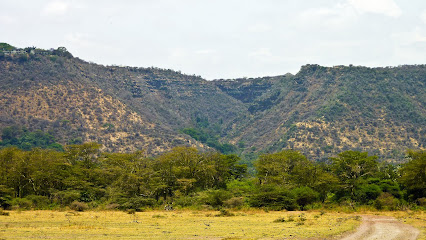
Mbali Mbali Mahale Lodge
Discover the beauty of Mahale National Park at Mbali Mbali Mahale Lodge, where luxury meets nature and adventure awaits in every corner.

Mhande
Experience breathtaking vistas and a journey through nature at Mhande Peak, a hidden gem in Tanzania offering adventure and tranquility.

Unmissable attractions to see
Katavi National Park
Explore the wild beauty of Katavi National Park, Tanzania's hidden gem, where adventure meets nature in an untamed wilderness.
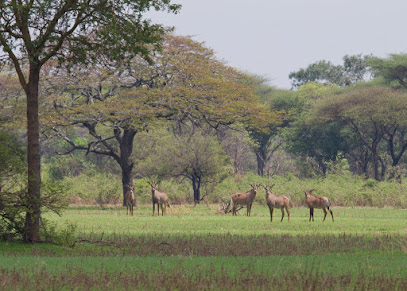
Leopard Tours LTD
Discover the beauty of Tanzania with Leopard Tours LTD, your premier tour operator for unforgettable wildlife adventures and cultural experiences.
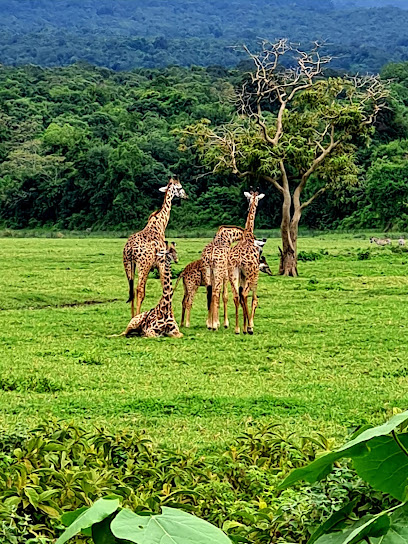
Gombe National Park
Explore Gombe National Park, a sanctuary for chimpanzees and a treasure of biodiversity along the stunning shores of Lake Tanganyika.
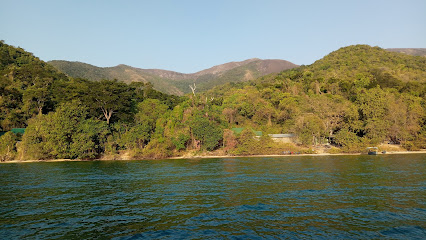
Mbalageti Serengeti
Discover unparalleled luxury and breathtaking views at Mbalageti Serengeti, your gateway to the wonders of the African savannah.

NAKUJA EXPEDITIONS LIMITED - Luxury African Safaris
Experience the ultimate luxury safari with Nakuja Expeditions, where adventure meets elegance in the heart of Tanzania's breathtaking landscapes.
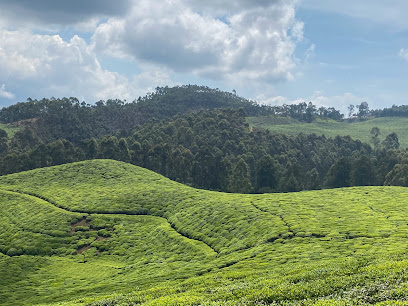
Mamba Kainda
Experience the breathtaking natural beauty and vibrant culture at Mamba Kainda, Kalemie’s hidden gem in Congo.
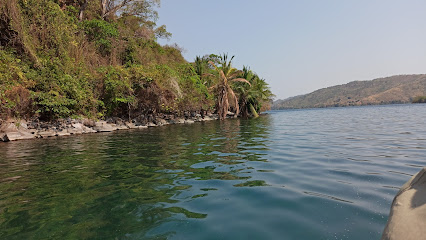
Mahale NP Headquarters
Explore Mahale National Park, a stunning Tanzanian gem known for its wild chimpanzees, breathtaking landscapes, and rich biodiversity.
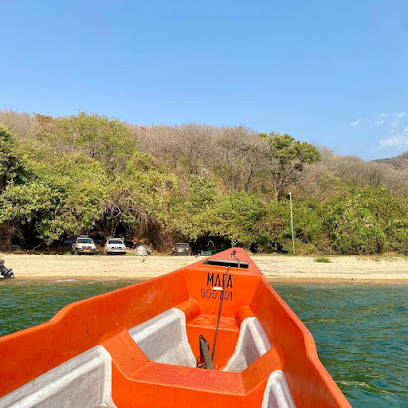
Avenue tanganyika
Explore Avenue Tanganyika in Kalemie, a lakeside paradise offering breathtaking views, vibrant culture, and exciting activities for every traveler.

Ntakata Mountains
Discover the breathtaking beauty and tranquility of Ntakata Mountains, Tanzania's hidden natural paradise for outdoor enthusiasts and culture seekers.

Essential places to dine
Cape Town Fish Market Dar es Salaam
Discover fresh seafood delights at Cape Town Fish Market in Dar es Salaam - where ocean flavors meet vibrant dining experiences.
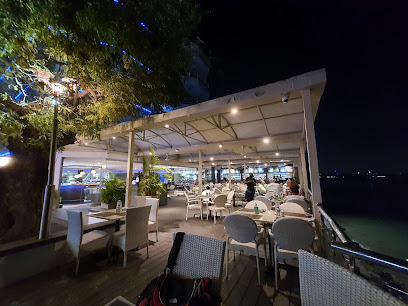
Samaki Samaki restaurant
Experience fresh seafood and vibrant local culture at Samaki Samaki restaurant in Dar es Salaam's Oyster Bay.
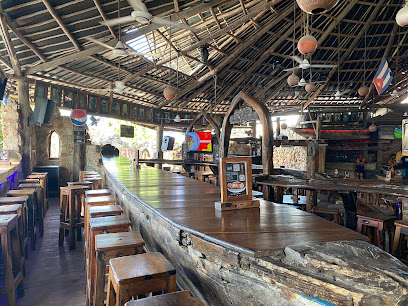
Karambezi Cafe
Experience the charm of Karambezi Cafe in Dar es Salaam - where delicious cuisine meets stunning ocean views.
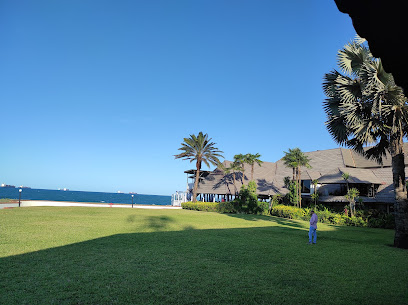
Chowpatty Restaurant
Discover the vibrant flavors of vegetarian cuisine at Chowpatty Restaurant in Dar es Salaam – where every meal is a celebration of health and taste.
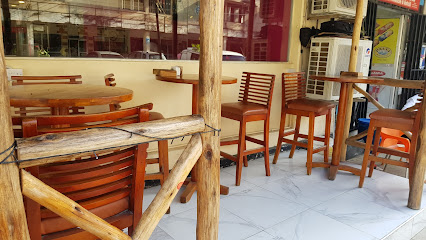
Grand Restaurant
Discover exquisite local and international dishes at Grand Restaurant in Dar es Salaam - a true culinary gem for food enthusiasts.
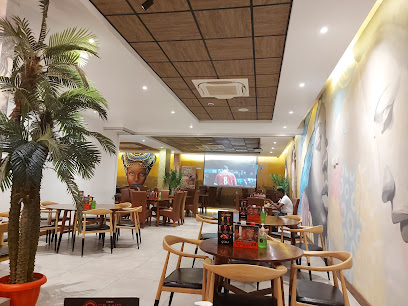
Akemi Revolving Restaurant
Discover breathtaking views and exquisite cuisine at Akemi Revolving Restaurant in Dar es Salaam – an unforgettable dining experience.

The Waterfront
Experience exquisite dining at The Waterfront in Dar es Salaam - where culinary delight meets stunning ocean views.
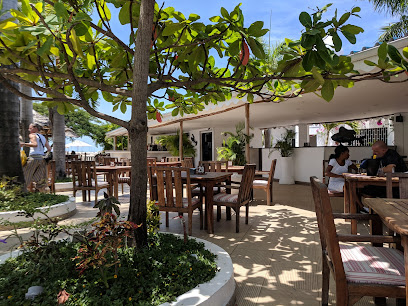
Zûane
Savor authentic Italian cuisine at Zûane in Dar es Salaam—where every meal is a delightful escape into flavor.

Burger53
Discover Burger53: A top dining spot in Dar es Salaam offering delicious burgers at affordable prices in a vibrant atmosphere.
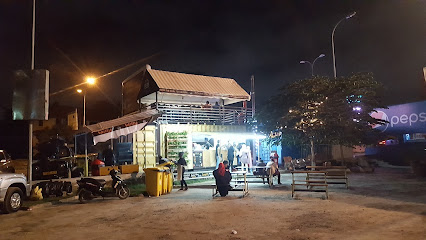
Rissa, Lumumba St.
Discover Rissa in Dar es Salaam: Your ultimate destination for mouthwatering barbecue and fast food delights.
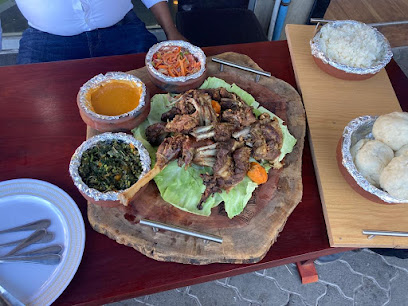
Bawarchi Restaurant - Best Barbeque Restaurant in Dar es salaam
Experience the rich flavors of India at Bawarchi Restaurant, Dar es Salaam's top choice for delicious barbecue and buffet dining.
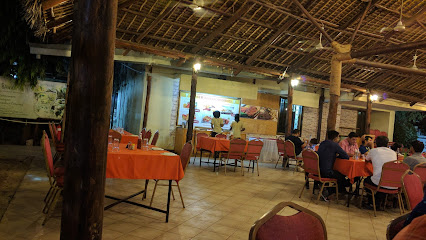
Hoppipola
Discover Hoppipola: A must-visit restaurant in Dar es Salaam blending local flavors with international cuisine.
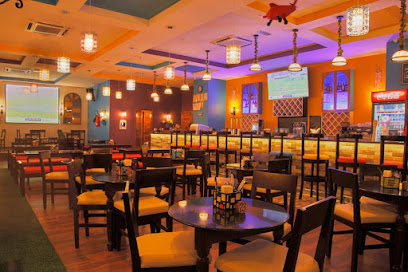
Baraza Restaurant And Cafe Ltd
Experience Dar es Salaam's culinary delights at Baraza Restaurant And Cafe Ltd with its unique barbecue buffet featuring local flavors.
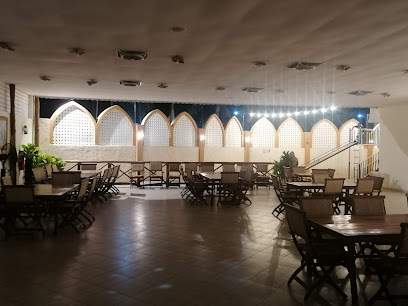
Indoitaliano Restaurant (Delivery available)
Experience the perfect blend of Indian and Italian cuisine at Indoitaliano Restaurant in Lindi – a must-visit for food lovers.
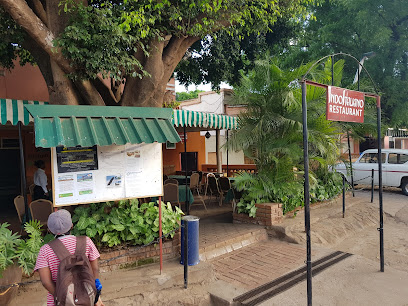
Choma Hut
Discover authentic Tanzanian cuisine at Choma Hut in Dar es Salaam—where every bite tells a story of flavor and tradition.
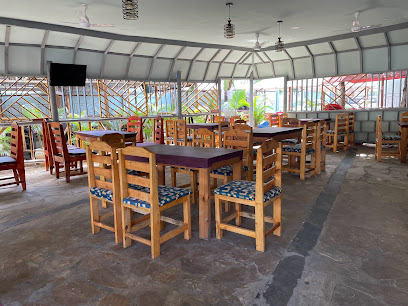
Markets, malls and hidden boutiques
Mahale Mountains National Park
Explore the breathtaking Mahale Mountains National Park, a wildlife paradise on the shores of Lake Tanganyika, home to wild chimpanzees and stunning landscapes.
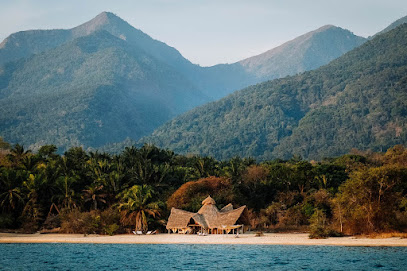
Brasimba
Experience the vibrant pulse of Kalemie at Brasimba Shopping Mall, where shopping, dining, and culture converge.
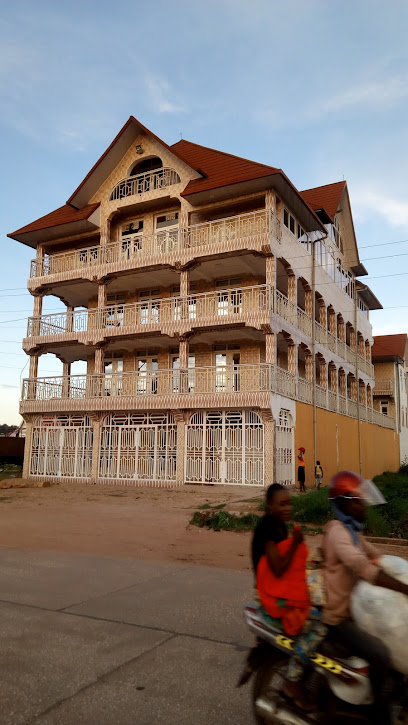
Ilangu market
Discover the colorful stalls and local flavors at Ilangu Market, where Mishoma’s vibrant culture comes alive in every corner.

Edition cleophas
Discover a vibrant shopping experience at Edition Cleophas in Kalemie, where local culture meets modern retail in a charming atmosphere.

City-raha
Discover unique fashion accessories in Kalemie, Congo-Kinshasa at City-raha, where tradition meets contemporary style.

BonckBisimwa
Discover the vibrant shopping scene at BonckBisimwa in Kalemie, where local culture meets a diverse range of products in an inviting atmosphere.
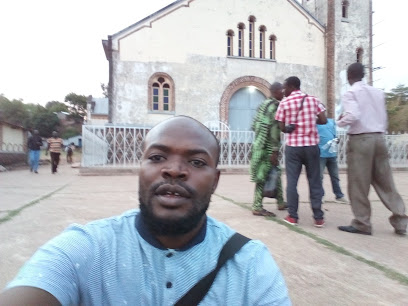
Amani accessoires
Explore Amani Accessoires in Kalemie for handcrafted treasures reflecting the rich culture of Congo. Perfect for unique souvenirs and local crafts.

Tokachini
Explore Tokachini in Kalemie for a vibrant shopping experience, local delicacies, and a taste of Congolese culture.
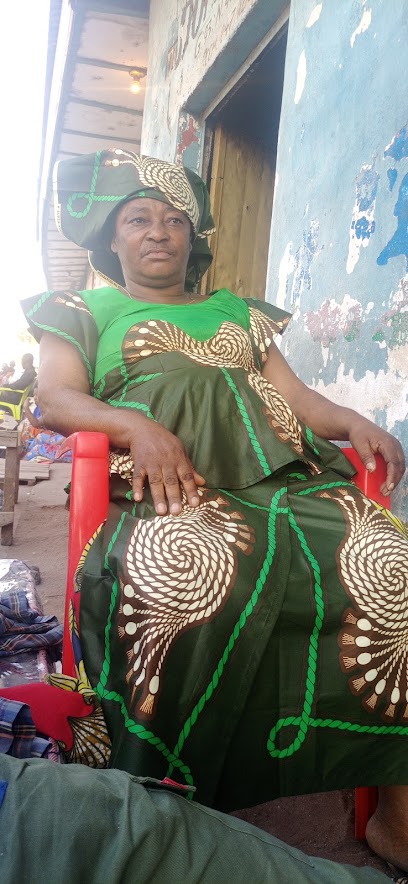
I langu Sokoni
Explore I Langu Sokoni in Mishoma for an authentic Tanzanian market experience filled with local culture, crafts, and delicious street food.

Dépôt Brasimba
Explore the bustling Dépôt Brasimba in Kalemie, a vibrant shopping mall offering local crafts, delicious food, and a rich cultural experience.
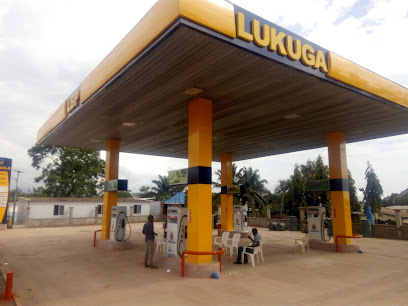
Wizzo Junior
Explore Wizzo Junior in Kalya for an exceptional selection of electronics, from smartphones to laptops, all at competitive prices.

ETS DAN Kalemie
Explore ETS DAN Kalemie for unique fashion accessories that reflect the vibrant culture of Kalemie, Congo - Kinshasa.

BOUTIQUE MALKA CANAL PLUS
Explore the vibrant world of magazines at Boutique Malka in Kalemie, where local culture and diverse interests meet in a charming atmosphere.

Mgambazi Dispensary
Mgambazi Dispensary: Your essential healthcare partner in Kigoma, Tanzania, ensuring travelers' health and well-being in this beautiful region.

Moïse
Discover the musical essence of Moïse, where local rhythms and vibrant performances bring the culture to life for every tourist.

Essential bars & hidden hideouts
Havoc Nightspot
Discover the ultimate nightlife experience at Havoc Nightspot, Dar es Salaam's premier cocktail bar and nightclub, where vibrant energy meets exquisite drinks.

The Slow Leopard
Experience the vibrant atmosphere of The Slow Leopard in Dar es Salaam, a perfect blend of bar, café, and restaurant with local music and delicious cuisine.

Mikumi Lounge
Experience the vibrant nightlife at Mikumi Lounge, a perfect blend of bar, lounge, and nightclub in Chamazi, Tanzania.

CHE Rock Bar & Restaurant
Experience the vibrant atmosphere of CHE Rock Bar & Restaurant in Zanzibar, where delicious food meets electrifying live rock music.
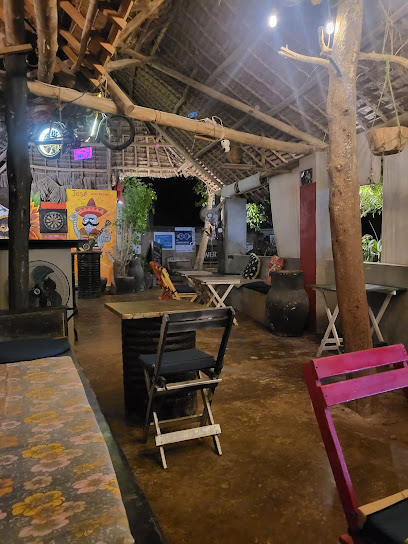
KUMALIJA PUB
Experience the vibrant flavors of Tanzania at Kumalija Pub, a lively grill in Dar es Salaam perfect for food lovers and socializers alike.
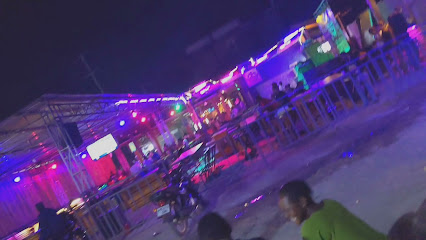
Mile 6
Discover the lively atmosphere and refreshing drinks at Mile 6, Tarakea's top bar for tourists seeking relaxation and local culture.
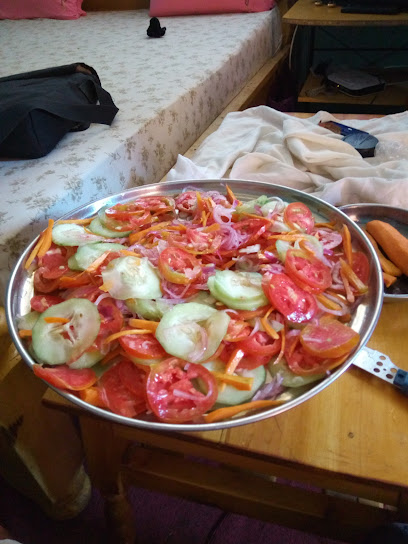
New Triple M Pub
New Triple M Pub in Mvumi Mission offers a vibrant atmosphere, diverse drinks, and a taste of local culture for all visitors.

Restaurant-Bar Etoile du Tanganyika
Experience the vibrant flavors and culture of Congo at Etoile du Tanganyika, a must-visit restaurant in Kalemie with stunning lake views.
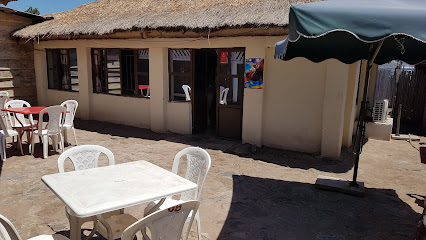
Chez Rio
Experience the vibrant nightlife of Kalemie at Chez Rio, your go-to bar for refreshing drinks and local charm.

Grand-lac
Experience local flavors and vibrant culture at Grand-lac, the premier bar in Kalemie, Congo, perfect for relaxation and social engagement.
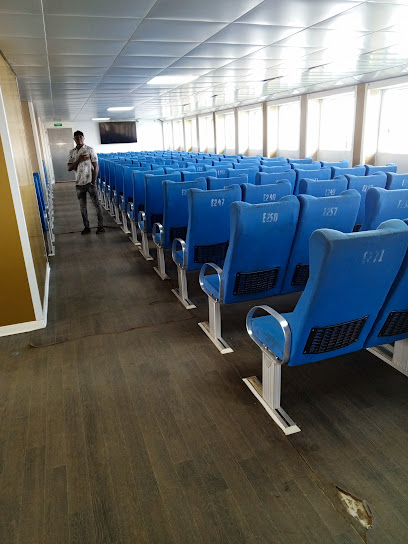
BEACH KWAMAMA
Experience the tranquil beauty of Beach Kwamama in Kalemie, where stunning lake views and local culture await your exploration.

Ayobe
Discover Ayobe, the vibrant bar in Kalemie, where local culture meets an inviting atmosphere for an unforgettable night out.

Nganda Musangay
Experience the vibrant nightlife at Nganda Musangay, Kalemie’s premier bar for local drinks and authentic Congolese culture.

Muchu resto bar
Experience the best of Kalemie at Muchu Resto Bar, where delicious fast food meets a vibrant atmosphere in the heart of Congo.

Local Phrases about Mahale Mountains National Park
-
- HelloJambo
[jahm-boh] - GoodbyeKwaheri
[kwah-heh-ree] - YesNdio
[nn-dee-oh] - NoHapana
[hah-pah-nah] - Please/You're welcomeTafadhali
[tah-fah-dah-lee] - Thank youAsante
[ah-sahn-teh] - Excuse me/SorrySamahani
[sah-mah-hah-nee] - How are you?U hali gani?
[oo hah-lee gah-nee?] - Fine. And you?Nzuri. Na wewe?
[n-zoo-ree. nah weh-weh?] - Do you speak English?Unazungumza Kiingereza?
[oo-nah-zoon-goom-zah kee-een-geh-reh-zah?] - I don't understandSielewi
[see-eh-leh-wee]
- HelloJambo
-
- I'd like to see the menu, pleaseNingependa kuona menyu, tafadhali
[ning-eh-pen-dah koo-oh-nah men-yoo, tah-fah-dah-lee] - I don't eat meatSili nyama
[see-lee nyah-mah] - Cheers!Mambo!
[mahm-boh!] - I would like to pay, pleaseNingependa kulipa, tafadhali
[ning-eh-pen-dah koo-lee-pah, tah-fah-dah-lee]
- I'd like to see the menu, pleaseNingependa kuona menyu, tafadhali
-
- Help!Usaidizi!
[oo-sah-ee-dee-zee!] - Go away!Ondoka!
[ohn-doh-kah!] - Call the Police!Piga simu polisi!
[pee-gah see-moo poh-lee-see!] - Call a doctor!Piga simu daktari!
[pee-gah see-moo dahk-tah-ree!] - I'm lostNimepotea
[nee-meh-poh-teh-ah] - I'm illNinaumwa
[nee-nah-oom-wah]
- Help!Usaidizi!
-
- I'd like to buy...Ningependa kununua...
[ning-eh-pen-dah koo-noo-noo-ah...] - I'm just lookingNatazama tu
[nah-tah-zah-mah too] - How much is it?Bei yake ni kiasi gani?
[beh-ee yah-keh nee kee-ah-see gah-nee?] - That's too expensiveHiyo ni ghali sana
[hee-yoh nee ghah-lee sah-nah] - Can you lower the price?Unaweza kupunguza bei?
[oo-nah-weh-zah koo-poon-goo-zah beh-ee?]
- I'd like to buy...Ningependa kununua...
-
- What time is it?Saa ngapi?
[sah-ah ngah-pee?] - It's one o'clockSaa moja
[sah-ah moh-jah] - Half past (10)Nusu ya (kumi)
[noo-soo yah (koo-mee)] - MorningAsubuhi
[ah-soo-boo-hee] - AfternoonMchana
[m-chah-nah] - EveningJioni
[joh-ee-nee] - YesterdayJana
[jah-nah] - TodayLeo
[leh-oh] - TomorrowKesho
[keh-shoh] - 1Moja
[moh-jah] - 2Mbili
[m-bee-lee] - 3Tatu
[tah-too] - 4Nne
[nn-neh] - 5Tano
[tah-noh] - 6Sita
[see-tah] - 7Saba
[sah-bah] - 8Nane
[nah-neh] - 9Tisa
[tee-sah] - 10Kumi
[koo-mee]
- What time is it?Saa ngapi?
-
- Where's a/the...?Iko wapi...?
[ee-koh wah-pee...?] - What's the address?Anuani ni ipi?
[ah-noo-ah-nee nee ee-pee?] - Can you show me (on the map)?Unaweza kunionyesha (kwenye ramani)?
[oo-nah-weh-zah koo-nee-oh-nyeh-shah (kweh-nyeh rah-mah-nee)?] - When's the next (bus)?Basi lijalo litakuwa saa ngapi?
[bah-see lee-jah-loh lee-tah-koo-wah sah-ah ngah-pee?] - A ticket (to ....)Tiketi (kwenda ...)
[tee-keh-tee (kwehn-dah ...)]
- Where's a/the...?Iko wapi...?
History of Mahale Mountains National Park
-
The Mahale Mountains region has been home to various indigenous tribes for centuries, including the Tongwe people. These indigenous communities have lived in harmony with the natural environment, relying on the forest for their livelihood through hunting, gathering, and small-scale agriculture. Their deep connection to the land is evident in their cultural traditions and practices, which have been passed down through generations.
-
The first recorded European exploration of the Mahale Mountains occurred in the late 19th century during the era of colonial expansion. German explorers ventured into the region, mapping the terrain and documenting the rich biodiversity. This period marked the beginning of increased Western interest in the area, although it remained relatively untouched compared to other parts of Tanzania.
-
Although Jane Goodall is most famously associated with Gombe Stream National Park, her pioneering work in the field of primatology has had a profound impact on the study of chimpanzees in the Mahale Mountains. Goodall's groundbreaking research in the 1960s paved the way for further studies that have helped to understand the complex social structures and behaviors of chimpanzees, which are also found in Mahale.
-
Mahale Mountains National Park was officially established in 1985. The park was created to protect the unique biodiversity of the region, with a particular focus on its chimpanzee populations. Covering an area of approximately 1,613 square kilometers, the park encompasses a diverse range of habitats, including montane forests, grasslands, and the shores of Lake Tanganyika.
-
Since its establishment, Mahale Mountains National Park has been the focus of numerous conservation efforts aimed at preserving its unique ecosystems and wildlife. However, the park faces several challenges, including poaching, habitat destruction, and human-wildlife conflict. Conservation organizations work tirelessly to address these issues through community engagement, anti-poaching patrols, and habitat restoration projects.
-
Mahale Mountains National Park is not only a haven for wildlife but also a site of cultural significance. The traditional practices and knowledge of the indigenous communities continue to play a vital role in the park's conservation efforts. Additionally, the park has become a popular destination for ecotourism, attracting visitors from around the world who come to experience its pristine natural beauty and learn about its unique cultural heritage.
Mahale Mountains National Park Essentials
-
Mahale Mountains National Park is located in western Tanzania, along the shores of Lake Tanganyika. The nearest major town is Kigoma, which has an airport (Kigoma Airport) with flights from Dar es Salaam and Arusha. From Kigoma, you can take a boat (a journey of about 3-4 hours) or a small chartered plane to the park. Alternatively, you can take a train or bus to Kigoma from other parts of Tanzania, although these options are less reliable and more time-consuming.
-
Within Mahale Mountains National Park, the primary mode of transportation is by boat, as there are no roads within the park. Most visitors travel by dhow or motorboat to explore the park and reach various camps. Walking safaris are also popular, given the park’s dense forest and mountainous terrain. For longer excursions, local guides and porters are available.
-
The official currency in Tanzania is the Tanzanian Shilling (TZS). Credit cards are accepted in some lodges and hotels, but it is advisable to carry cash, especially for smaller transactions and tips. ATMs are available in Kigoma, but not within the park, so ensure you withdraw sufficient cash before entering Mahale Mountains National Park.
-
Mahale Mountains National Park is generally safe for tourists. However, standard precautions should be taken. Avoid displaying valuables and always keep an eye on your belongings. There are no specific high-crime areas targeting tourists within the park, but it is always good to stay vigilant. When hiking, always stay with your group and follow the instructions of your guide to avoid encounters with wildlife.
-
In case of emergency, contact your lodge or camp manager immediately as they are equipped to handle most situations. For medical emergencies, the nearest hospital is in Kigoma, so it is crucial to have travel insurance that covers medical evacuation. Always carry a first-aid kit and any necessary medications with you.
-
Fashion: Do wear light, breathable clothing, and sturdy hiking boots. Avoid bright colors that may attract insects. Religion: Do respect local customs and traditions; avoid wearing revealing clothing. Public Transport: Do use boats for transportation within the park. Be respectful of other passengers. Greetings: Do greet locals with a handshake. A friendly 'Jambo' (Hello) is appreciated. Eating & Drinking: Do try local delicacies and accept food offerings graciously. Don’t waste food, as it is considered disrespectful.
-
To experience Mahale Mountains National Park like a local, engage with local guides who can offer insights into the park’s wildlife and culture. Participate in traditional fishing activities on Lake Tanganyika and visit nearby villages to learn about the local way of life. Don’t miss the opportunity to track chimpanzees with experienced guides, as Mahale is renowned for its chimpanzee population.
Nearby Cities to Mahale Mountains National Park
-
Things To Do in Bururi
-
Things To Do in Rumonge
-
Things To Do in Gitega
-
Things To Do in Bujumbura
-
Things To Do in Muramvya
-
Things To Do in Tabora
-
Things To Do in Ngozi
-
Things To Do in Kayanza
-
Things To Do in Muyinga
-
Things To Do in Cibitoke
-
Things To Do in Butare
-
Things To Do in Kirundo
-
Things To Do in Nyamata
-
Things To Do in Karongi
-
Things To Do in Muhanga







